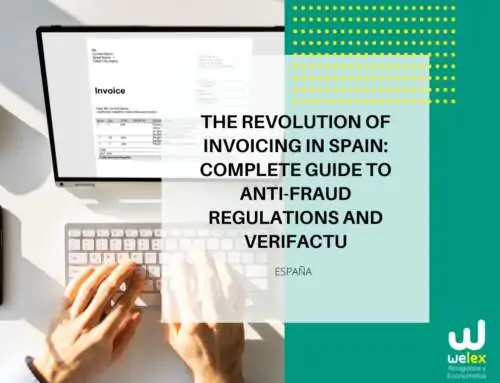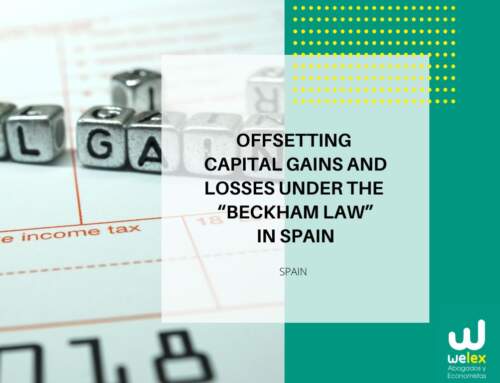Our office of economists , accountants and solicitors in Spain is pleased to write a few lines about the general tax rate applicable to corporation tax in Spain for a holding company in Andalusia in the 2024 financial year.
The Corporation Tax Act stipulates that the general tax rate for taxpayers is 25%, as holding companies are not eligible for reduced rates and are taxed at the general rate established by law. Furthermore, specific regulations stipulate that entities considered to be capital companies according to the legal definition are not eligible for the reduced rates applicable to other entities, meaning that they must be taxed at the general rate.
Consequently, a capital company established in Andalusia or in another autonomous community of Spain will be subject to the general tax rate of 25% in the 2024 financial year. There are no specific provisions in national legislation allowing the application of a lower rate for this type of company, nor are there any autonomous provisions in Andalusia that modify this general rule.
What are the conditions or requirements for a company in Andalusia to be considered a capital company under the corporation tax law?
A Spanish company established in Andalusia is considered a capital company under the Corporation Tax Law when more than half of its assets consist of securities or are not used for an economic activity, which is understood to mean the management of production resources and/or human resources for the production or distribution of goods or services. In the case of property rental, economic activity is only deemed to exist if the company employs at least one full-time employee and has premises intended for management.
Spanish corporation tax law stipulates that an entity is considered to be a holding company if the majority of its assets consist of securities or assets that are not used for economic activity, which means that the company does not engage in any real production or service activity. In order not to be considered a capital company, a company must demonstrate that its assets are used for a real economic activity, which in the case of property rental requires the existence of a minimum structure of material and human resources.
Case law and administrative decisions have established that the mere possession of goods or the passive management of movable or immovable property does not constitute an economic activity and that the administration must base itself on the company’s annual accounts to determine its property law nature, except in the case of a duly corrected accounting error. There are exceptions for companies that manage significant holdings in other entities, provided that they have an adequate organisation of material and human resources to perform management functions.
The definition of a capital entity in the context of corporation tax can be found in Law 27/2014 of 27 November, which applies to the whole of Spain, including Andalusia. According to this law, a company is considered a holding company when more than half of its assets consist of securities or are not used for an economic activity, within the meaning of the law itself (Corporate Income Tax Law. Law 27/2014 of 27 November).
The concept of economic activity in Spain
This concept implies that means of production and/or human resources are used on one’s own account for the production or distribution of goods or services. In the specific case of property rental, the law requires that at least one person be employed on a full-time basis under an employment contract for the company to be considered to be engaged in an economic activity (Decision No. 00/02841/2019/00/00 of TEAC, 23/03/2021; Decision No. 00/00622/2016/00/00 of TEAC, 05/07/2016).
The law also provides for an exception for companies that have significant holdings (at least 5% of the capital) in other entities and have adequate material and human resources to manage these holdings (The inadequate adoption of the Community concept of ‘economic substance’ by tax case law on the anti-abuse clause, 2025-01-01).
Case law in Spain
The Supreme Court has repeatedly interpreted the concepts of capital entity and economic activity in the context of corporation tax. In particular, it has indicated that the mere leasing of goods does not constitute an economic activity if there is no space available exclusively for the management of the activity and there is not at least one full-time employee (Supreme Court ruling no. 682/2021 of 13 May 2021). This doctrine reinforces the requirement for a minimum structure of material and human resources in order to prevent the company from being considered a property right.
Other judgments of the Supreme Court and the High Courts of Justice have reiterated that the key to determining the asset-based nature of a company lies in the use of its assets for an actual economic activity, and that the mere possession of securities or goods is not sufficient to prevent the company from being considered an asset-based entity (Supreme Court ruling no. 660/2020 of 3 June 2020; ruling of the High Court of Justice of Catalonia, Administrative Disputes Chamber no. 2851/2020 of 30 June 2020).
Administrative decisions in Spain
The Central Economic-Administrative Court (TEAC) has ruled that, for the purposes of corporation tax, a company’s financial situation must be assessed on the basis of the annual accounts submitted by the company itself, unless an accounting error is demonstrated that has been corrected in subsequent financial years (decision no. 00/03720/2020/00/00 of TEAC, 22/04/2021). This means that the tax authorities may not apply criteria other than those shown in the annual accounts, except in the cases mentioned.
The TEAC has also reiterated the definition of economic activity and the requirement for material and human resources in the case of property rental, in accordance with case law and legislative interpretation (Resolution No. 00/02841/2019/00/00 of TEAC, 23/03/2021; Resolution No. 00/00622/2016/00/00 of TEAC, 05/07/2016).
Would you like to know more about the corporate tax rate in Spain? Then contact one of our economists and tax advisers in Spain now! Here at Welex Law Firm, we are happy to assist you with all your questions.






Social Media